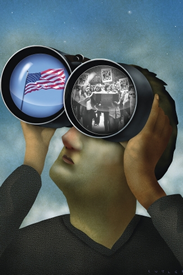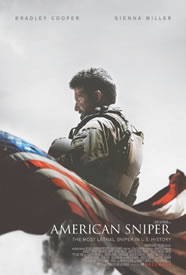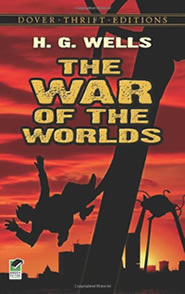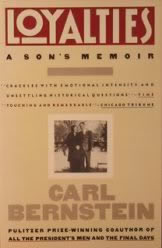Author Richard Pells
 Available online at Amazon.com
Available online at Amazon.com
Available online at BarnesandNoble.com
Available locally (Austin) and online at BookPeople.com
War Babies named in the Top 50 Non-Fiction Books of 2014 by Conversations Book Club
Author Richard Pells talks about the inspiration for his new book: War Babies: The Generation That Changed America
Praise for War Babies
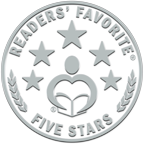
![]() “War Babies by Richard Pells covers well-trodden territory, but does so with a difference. America and the world went through a transformative period in the 1960s and 1970s. The history of this time has been written about extensively, but most of it has been told as if the events and changes were the product of the Baby Boomer generation. However, Pells rightly points out that many of the people causing the changes were actually members of the War Baby generation (born between 1939 and 1945). Though this generation covers a much shorter span of time, war babies were instrumental in changing culture, music, movies, and politics. Using several key figures from that time, including Bob Dylan, Joan Baez, Marin Scorsese, Robert De Niro, Faye Dunaway, John Kerry, Nancy Pelosi, and Dick Cheney, War Babies details their lives and careers, and the way they changed America forever.
“War Babies by Richard Pells covers well-trodden territory, but does so with a difference. America and the world went through a transformative period in the 1960s and 1970s. The history of this time has been written about extensively, but most of it has been told as if the events and changes were the product of the Baby Boomer generation. However, Pells rightly points out that many of the people causing the changes were actually members of the War Baby generation (born between 1939 and 1945). Though this generation covers a much shorter span of time, war babies were instrumental in changing culture, music, movies, and politics. Using several key figures from that time, including Bob Dylan, Joan Baez, Marin Scorsese, Robert De Niro, Faye Dunaway, John Kerry, Nancy Pelosi, and Dick Cheney, War Babies details their lives and careers, and the way they changed America forever.
War Babies is effective in conveying the early years of each person and showing how they rose to their prominent place in American lore. It covers history that most of us know, but provides key insights and information that gives us a fresher, and perhaps better, view of the Sixties and Seventies. Richard Pells is not only concerned with giving us a new perspective on this important era in American history, he is also proudly defending his generation. His main theme is that the War Baby generation created the cultural and political framework in which we live today. This is a long overdue book on a generation that seems to have slipped between the cracks, and it is both interesting and enlightening to a Baby Boomer like myself.” ~ Fred Phillips for Readers Favorite
![]() “Perhaps being one of these War Babies contributes to the enthusiasm this reader has for this book. It is like a visit home to childhood and then a survey of all of the important figures bred during the time of WW II and post WW II era. His journey is reflected in the four sections of his book: the war babies produced the culture and political attitudes that persist to this day; The war babies were the architects of a value system less communal and more private, more suspicious of the benefits of government policy, political and organizations of all types; the war babies’ perspective on America was darker and more pessimistic – a skepticism that characterizes contemporary American culture and politics; the attitudes of war babies was exemplified in their movies, music, journalism and politics, that their descendants absorbed but did not originate.
“Perhaps being one of these War Babies contributes to the enthusiasm this reader has for this book. It is like a visit home to childhood and then a survey of all of the important figures bred during the time of WW II and post WW II era. His journey is reflected in the four sections of his book: the war babies produced the culture and political attitudes that persist to this day; The war babies were the architects of a value system less communal and more private, more suspicious of the benefits of government policy, political and organizations of all types; the war babies’ perspective on America was darker and more pessimistic – a skepticism that characterizes contemporary American culture and politics; the attitudes of war babies was exemplified in their movies, music, journalism and politics, that their descendants absorbed but did not originate.
His book is divided into significant chapters exploring the following: A child’s eye view of World War II, Growing up in Cold War America, The limits of McCarthyism, The war babies and the Postwar Media, The revolution in movies, Reshaping America: the politics and journalism of the war baby generation, and the Legacy of the War Babies.
Pells brings to our attention many things even those of us who are war babies have forgotten – that famous people such as musicians and composers like Joan Baez, Bob Dylan, Barbra Streisand, Joni Mitchell, Janis Joplin, and Simon and Garfunkel, with film directors like Francis Ford Coppola, George Lucas and Martin Scorsese, with actors like Al Pacino, Robert De Niro, Faye Dunaway, Harrison Ford, Lily Tomlin, Christopher Walken, Harvey Keitel, Martin Sheen and Joe Pesci; with athlete/activists like Muhammad Ali and Billie Jean King; with journalists like Bob Woodward and Carl Bernstein, Tom Brokaw, George Will and Roger Ailes; influential politicians and humanitarians like Jesse Jackson, John Lewis, Tom Hayden, Joe Biden, Richard Holbrooke, John Kerry and Nancy Pelosi. By bringing all of this and so much more to our attention, the era of War Babies becomes far more important to our national image and thinking. A fascinating book, brilliantly written.” ~ Grady Harp
![]() “War Babies is a wonderful and extremely readable book about a cross-section of the population who were born between 1939 and 1945. It is a book that readers will want to read and re-read over and over again.
“War Babies is a wonderful and extremely readable book about a cross-section of the population who were born between 1939 and 1945. It is a book that readers will want to read and re-read over and over again.
According to Pells, war babies changed the whole world. Those changes shaped the world we now live and will continue to for the future as well. War babies are more resilient and successful than people born either before this time or after. This is quite an interesting premise, and a very unique idea for a book.
Pells discusses four themes in the book. First, Pells believes that war babies produced the culture and political attitudes we were living with ever since. Secondly, war babies were the architects of a value system that was less communal and more private. It was also a system that was more suspicious of the benefits of government policy, political power and organizations. Thirdly, war babies provided a unique perspective on America which was darker and more pessimistic than for previous and future generations. This skepticism characterizes American culture even today. Fourthly, war babies were survivors of both the Depression and World War II. Because of this, they have a lot more resilience and can cope better than anyone in the past or future.
Thus, war babies renovated the cultural and political landscapes. Their art and activities transfigured modern America. This book is a tribute to war babies. And it is definitely a tribute worth making, given the fact that so many talented musicians and singers such as Bob Dylan, Joan Baez, Joanie Mitchell, Judy Collins, Simon and Garfunkle, actors such as Robert De Niro and Al Pacino, directors such as Francis Ford Coppola, Martin Scorsese, journalists such as Bob Woodward, Carl Bernstein, athlete/activists such as Muhammad Ali, Billie Jean King, civil rights activists such as Mario Savio, Tom Hayden, John Lewis, Barney Frank, and politicians such as John Kerry, Nancy Pelosi, Dick Cheney who were born in these years. They became adults in the early 1960’s.
There was something important about growing up during a time of upheaval and uncertainty. People brought up during these years never took anything for granted and they knew that unless they worked hard nothing was going to come to them easily. So, they developed a discipline and passion for whatever they were truly gifted doing. The war babies taught us that we should not take things for granted but we should work hard to achieve anything that we really are passionate about. And that is a wonderful thing to strive to achieve. If only kids today believed that.” ~ Irene Roth
![]() “Author Richard Pell’s fascinating historical account explores the years of Americans born from 1939 through 1945. He states throughout the course of the book that War Babies “initiated most of the social and cultural motivations that Boomers have taken credit for over the years,” often rewriting history to fit their own philosophy. He covers all sectors of this generation, including musicians, film directors, composers, actors, athletes, journalists, politicians and more. War Babies’ contribution, according to the author, has and continues “to shape our lives and culture in the 21st century. ” Pells notes that on May 30, 2012, a picture of Bob Dylan receiving the Medal of Freedom from President Obama appeared on the front page of the Wall Street Journal and on the same day the editorial-page of the New York Times celebrated Paul Simon’s contribution to music — confirming this writer’s statements.
“Author Richard Pell’s fascinating historical account explores the years of Americans born from 1939 through 1945. He states throughout the course of the book that War Babies “initiated most of the social and cultural motivations that Boomers have taken credit for over the years,” often rewriting history to fit their own philosophy. He covers all sectors of this generation, including musicians, film directors, composers, actors, athletes, journalists, politicians and more. War Babies’ contribution, according to the author, has and continues “to shape our lives and culture in the 21st century. ” Pells notes that on May 30, 2012, a picture of Bob Dylan receiving the Medal of Freedom from President Obama appeared on the front page of the Wall Street Journal and on the same day the editorial-page of the New York Times celebrated Paul Simon’s contribution to music — confirming this writer’s statements.
The Boomers were too young to have experienced the new exciting revolutions; folk music, movies like “The Graduate,” the Kennedy assassinations, McCarthyism, the Korean War, and Vietnam, just to name a few of the events that changed the course of the country. Author Pells, a war baby himself, born in 1941, takes his readers on a journey of factual memories of a special time in America’s history, which has not been given the recognition it deserves. He writes of his personal life, growing up in a Jewish family — his grandmother fleeing the pogroms in Poland, just missing the coming Holocaust — only to endure ethnic discrimination in America.
This is an exceptional book in that it not only presents a cultural historical viewpoint but peppers it with background information such as Robert Zimmerman who later became Bob Dylan, as well as the troubled childhood of Faye Dunaway. This riveting, fast-paced enjoyable account of the connections and similarities of this country’s most famous icons make it a hard book to put down. The author shows how War Babies from entertainers to politicians and journalists, through their own deprivations, paved the way for a new and better society in all walks of life. Their stories come from poverty, wars, struggles, and determination, laying the groundwork for a better life; the likes of which this present generation will never again experience. Nor will today’s technological society fully know, understand or have the moral internal strengths, endurance and perseverance of the War Babies . . . A sad thing, a great loss.
One of the most remarkable aspects of this book is the author’s ability to link and interweave the diverse personalities and achievements of both the cultural and political men and women, as he demonstrates how this generation molded the future. Known as `the Quiet Generation,’ it made the transition from `the Greatest Generation’ to the `Lost Generation,’ carried on through the legacy of parents who bestowed its benefits upon their children. Pells contends that while War Babies have managed to reshape the culture and politics of America from the 1960s until now,” the author leaves us with a prognosis that “is both frightening and liberating.”
This work by Richard Pells, who is, among other things, Professor of History Emeritus at the University of Texas at Austin, should be used by educators as a textbook and required reading for students — as both an excellent lesson and research resource. War Babies is so saturated with cultural memories of an often forgotten past that it overwhelms the reader’s senses, but in a most positive and pleasurable way.” ~ Micki Peluso, author of . . . And the Whippoorwill Sang
![]() “Richard Pells’ War Babies is unique. It is thorough and well documented, of course, which would be expected of Pells. But first and foremost it is extremely readable. When I finished the book, I immediately started over from the beginning and read it again.
“Richard Pells’ War Babies is unique. It is thorough and well documented, of course, which would be expected of Pells. But first and foremost it is extremely readable. When I finished the book, I immediately started over from the beginning and read it again.
Pells makes a compelling case that these War Babies and not the often credited Baby Boomers, were the moving force in the changes in the last 50 years. Although the War Babies were born from 1939 to 1945, I think those born in ’46, and ’47 are close enough to these events to recognize their significance in who we have become.
I give this book 5 stars and think it should be required reading for every Baby Boomer born after 1950 and for every “War Baby” who watched and lived through the unfolding of these events. I lived through these decades as a young adult and have read many books about the 60’s and 70’s, but this, in my opinion, is the best.” ~ Barbara W. McKinley
![]() “This is an engrossing argument that certain Americans, born between 1939 and 1945, helped shape as grownups a society more devoted to self-expression and self-cultivation, and more skeptical of authority and institutions. Some Americans did so as actors and directors and singer-composers, others as political activists. The author has a gift for apt summation and for the occasional historical curio. It’s a book that merits serious consideration.” ~ Stephen J. Whitfield
“This is an engrossing argument that certain Americans, born between 1939 and 1945, helped shape as grownups a society more devoted to self-expression and self-cultivation, and more skeptical of authority and institutions. Some Americans did so as actors and directors and singer-composers, others as political activists. The author has a gift for apt summation and for the occasional historical curio. It’s a book that merits serious consideration.” ~ Stephen J. Whitfield
In this relatively brief book, Pells (emer., Univ. of Texas, Austin) asserts that the “war babies”—those Americans born between 1939 and 1945—were chiefly responsible for defining postwar culture and politics. Though members of the greatest generation were admirable survivors and the baby boomers were the fortunate inheritors of postwar prosperity, Pells contends the war babies brought about the nation’s “cultural and political renovation.” They, he argues, embraced a value system that was less communal and suspicious of government, politics, and organizations. This cohort, he asserts, not the baby boomers, first reflected a deep fear of conformity. Leading off with such topics as the impact of WW II, the Cold War, and McCarthyism on this group, Pells moves on to examine how the war babies distinctly shaped postwar media, music, film, and journalism. Focusing on the lives, achievements, and legacies of several dozen prominent war babies, Pells makes a compelling case for his thesis, especially in the chapters dealing with music and film. A solid and informative challenge to the widespread belief that the baby boomers were the chief shapers of the postwar US. ~ B. T. Browne, emeritus, Broward College for ALA CHOICE
Praise for Author Richard Pells
“There is much to enjoy here . . . a rousing jaunt through a period of remarkable upheavals in entertainment and the arts.” ~ The Wall Street Journal
“Debates over high and low art, and the avant-garde vs. popular culture, rage throughout this absorbing volume.” ~ Publishers Weekly
“Very close to a unified field theory of twentieth-century American culture.” ~ Gene Seymour, Bookforum
“Pells writes with grace and accessibility about big ideas, and he’s a master of synthesizing disparate materials and figures, from Frank Lloyd Wright to Miles Davis to Robert Altman. This is among the most lively multidisciplinary arts studies I’ve ever read.” ~ Dallas Morning News
“Pells’ reading of American art, music, and movies is at its freshest and is most destabilizing of the easy generalities that we wrap around the products of American culture.” ~ Daniel T. Rodgers, Reviews in American History
